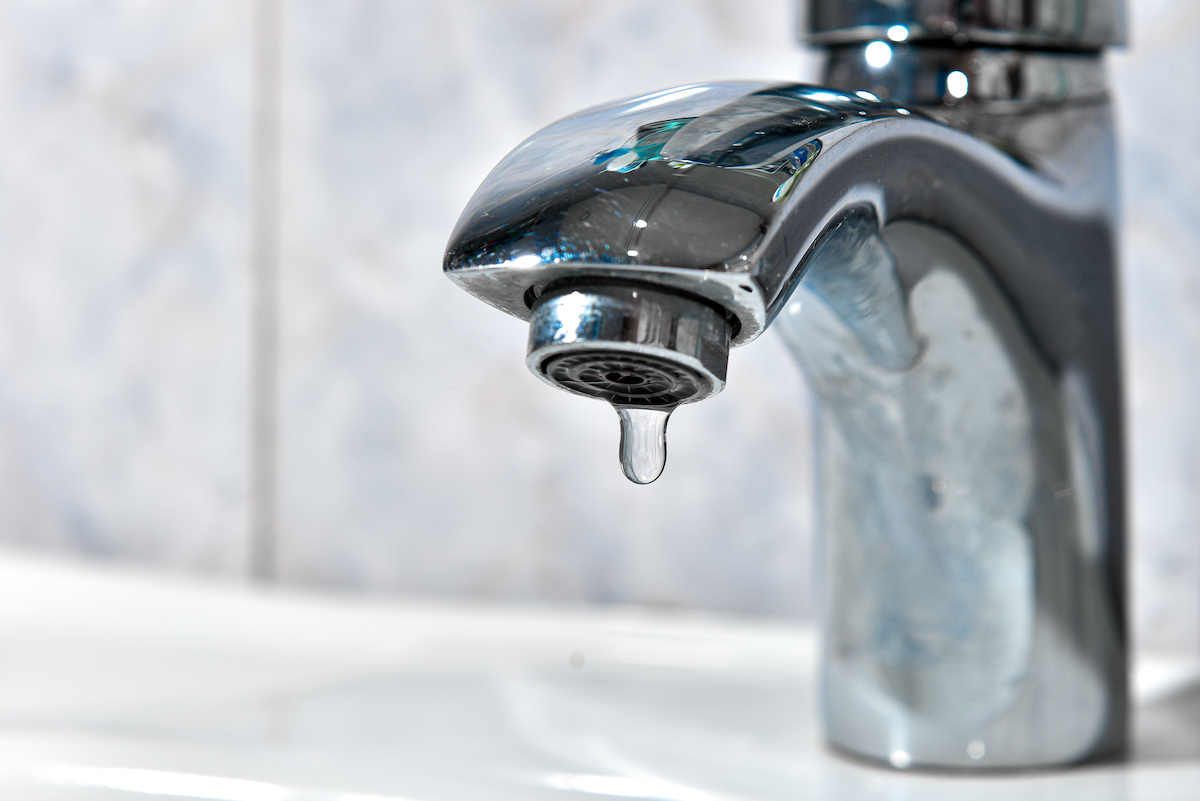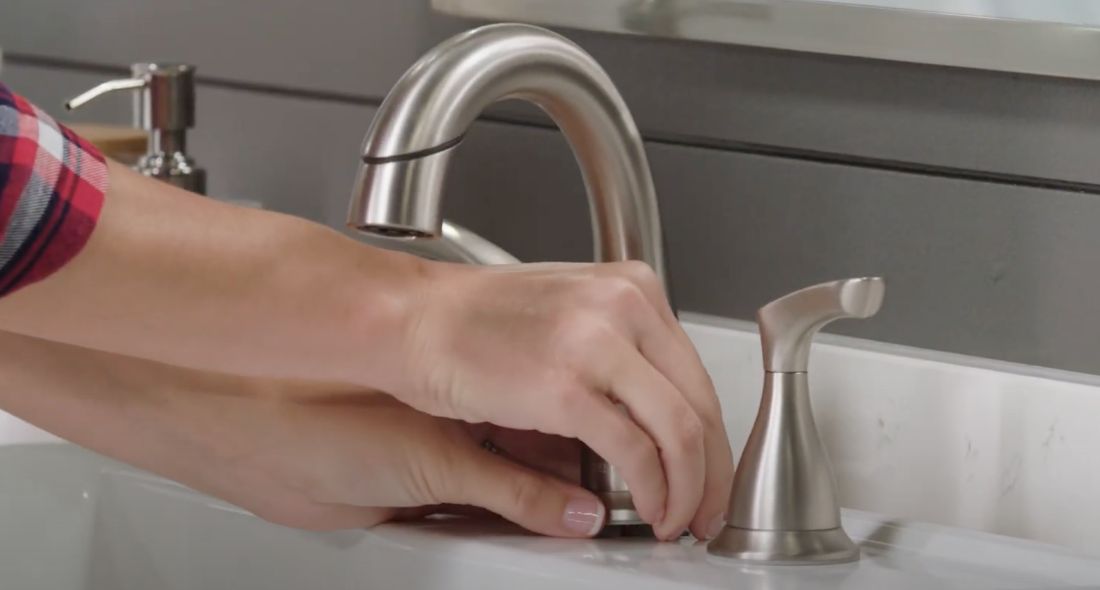An Factors Behind Repairing a Malfunctioning Faucet
An Factors Behind Repairing a Malfunctioning Faucet
Blog Article
We've uncovered this post relating to Should I Repair or Replace a Leaky Faucet? down the page on the net and think it made perfect sense to talk about it with you on this page.

Trickling taps may seem like a minor trouble, yet their effect exceeds just the nuisance of the noise. From wasting water to incurring unnecessary financial prices and wellness dangers, neglecting a dripping tap can cause different consequences. In this write-up, we'll explore why it's essential to resolve this common family issue without delay and efficiently.
Wastefulness of Water
Environmental Impact
Trickling faucets add dramatically to water wastage. According to the Epa (EPA), a solitary tap dripping at one drip per secondly can throw away more than 3,000 gallons of water annually. This not just pressures water resources but additionally affects environments and wild animals depending on them.
Financial Prices
Increased Water Expenses
Beyond the environmental effect, leaking taps can pump up water expenses considerably. The gathered wastefulness over time equates into higher energy expenses, which might have been avoided with timely repair services.
Potential Residential Or Commercial Property Damages
In addition, prolonged leaking can bring about harm to fixtures and surfaces surrounding the tap. Water build-up can cause discoloration, corrosion, and even architectural concerns if left neglected, resulting in additional repair service expenses.
Health and wellness Worries
Mold And Mildew and Mold Development
The continuous existence of moisture from a trickling tap develops a perfect environment for mold and mold development. These fungis not just endanger interior air high quality however also present health and wellness dangers, specifically for people with breathing conditions or allergic reactions.
Waterborne Illness
Stagnant water in trickling faucets can come to be a breeding place for germs and various other pathogens, increasing the threat of waterborne illness. Impurities such as Legionella germs thrive in stationary water, possibly causing serious ailments when ingested or breathed in.
DIY vs. Specialist Repair
Benefits and drawbacks of DIY Repair Service
While some may attempt to take care of a dripping faucet themselves, do it yourself fixings come with their own collection of obstacles. Without proper knowledge and tools, DIY efforts can aggravate the concern or lead to incomplete repair work, lengthening the trouble.
Advantages of Hiring a Specialist Plumber
Working with a professional plumber makes certain that the underlying source of the trickling tap is resolved properly. Plumbing professionals have the experience and tools to detect and repair faucet concerns effectively, saving time and minimizing the danger of further damages.
Step-by-Step Guide to Fixing a Dripping Tap
Tools Called for
Prior to attempting to deal with a dripping faucet, gather the required tools, consisting of an adjustable wrench, screwdrivers, substitute parts (such as washing machines or cartridges), and plumber's tape.
Typical Tap Issues and Their Solutions
Identify the sort of faucet and the details problem creating the drip. Common issues consist of damaged washers, rusty valve seats, or faulty O-rings. Refer to maker instructions or online tutorials for detailed advice on repairs.
Preventive Measures
Routine Upkeep Tips
To stop trickling faucets, perform routine maintenance such as cleaning up aerators, checking for leakages, and changing damaged components without delay. In addition, take into consideration mounting water-saving tools or upgrading to much more efficient fixtures.
Importance of Prompt Repair Works
Attending to leaking faucets as soon as they're noticed protects against more water waste and potential damages, inevitably saving both water and cash in the long run.
Impact on Residential Or Commercial Property Worth
Understanding of Well-Maintained Home
Maintaining a property in good condition, consisting of addressing upkeep issues like leaking taps, improves its regarded value and worth among possible buyers or occupants.
Impact on Resale Value
Qualities with well-maintained plumbing fixtures, consisting of taps, command higher resale values in the realty market. Resolving leaking taps can add to a favorable impact during home assessments and arrangements.
Ecological Duty
Specific Payment to Preservation
Taking duty for fixing trickling taps lines up with wider initiatives toward water conservation and environmental sustainability. Every person's activities collectively make a substantial effect on preserving priceless resources.
Lasting Living Practices
By focusing on prompt repair services and taking on water-saving habits, individuals contribute to lasting living techniques that benefit both existing and future generations.
Final thought
Addressing a trickling faucet surpasses simple convenience; it's a necessary step towards conserving water, minimizing financial prices, and safeguarding wellness and residential property. Whether through do it yourself fixings or expert help, taking action to repair trickling taps is a little yet impactful means to advertise responsible stewardship of resources and add to a much healthier, extra sustainable future.
How to Fix a Leaky Faucet: Step-by-Step Repair Guide
A leaky faucet may seem like a simple annoyance, but if it's not fixed promptly, that leak could cost hundreds to potentially thousands. From water damage to mold, mildew, and high water bills, even a tiny leak can be catastrophic if left unattended. Damage like this can even affect the overall value of your home, so it's important to take the right approach for leaky faucet repair. You may need the help of a plumber in some cases, but we've got a few tips you can try on how to fix a leaky faucet before calling the pros.
Four Faucet Types
When you're learning how to fix a leaky faucet, the first step is knowing what kind of faucet you're working with! There are four common types.
Cartridge Faucets
Cartridge faucets come in one- or two-handled varieties. In one-handled cartridge faucets, hot and cold water combines in a single cartridge. In the two-handled versions, hot and cold water are controlled separately and mixed in the faucet.
Ball Faucets
Ball faucets have a single lever you push up and down to adjust the pressure and rotate to change the temperature. A slotted metal ball controls the amount of water allowed into the spout.
Compression Washer Faucets
They're the oldest type of faucet, but they're still used in many homes — especially older ones. Compression faucets have two separate handles that, when turned, raise or lower the washer that seals a water valve. This valve stops water from flowing through the faucet when it is turned off.
Disc Faucets
Disc faucets rarely need to be repaired due to their maintenance-free design. The water flow is controlled by two discs — the upper one raises and lowers against a fixed lower disc, creating a watertight seal. If your disc faucet starts leaking, you may need to replace the seals or clean residue buildup from the inlets.
Fixing a Leaky Faucet
Step 1: Turn Off the Water
Whether you're learning how to fix a leaky bathtub faucet or how to fix a leaky kitchen faucet, always turn off the water supply to your working area when you're fixing a leak. The last thing you want is a flood added to your list of things to fix.
Look for the shutoff valves below your sink or around the tub and turn them clockwise to stop the water flow. If your faucet doesn't have shutoff valves, you may need to turn off the water for the whole house. Check to make sure it's off by turning the faucet on. If nothing comes out, you're ready to start the repair.
Step 2: Take Apart the Faucet
How you disassemble your faucet depends on the type of fixture you have. You can use a flathead screwdriver to remove the caps on top of the handle or handles for cartridge and compression faucets. Inside, you should see handle screws. Unscrew these with a screwdriver to remove the handle.
Disc- and ball-style faucets will typically have an inlet screw near the handle, and removing that will reveal the interior of the faucet.
Detach the Valve Stem
For cartridge- and compression-style faucets, you'll see the inner valve stem or cartridge once you remove the faucet handles. If you have a compression faucet, unscrew the brass valve stem. If you have a cartridge faucet, pull out the cartridge. If your cartridge has been in place for a while, it may require some tools or extra force to remove it due to mineral deposits.
Examine and Replace Parts
Once you've removed the parts, check them out to confirm what needs to be replaced. You may see corroded rubber washers, O-rings, stems, or cartridges. On a ball-style faucet, check the seats and springs for damage.
If you need to repair a leaky disc faucet, check the inlet and seals on the lower disc.
Once you determine what parts must be replaced, visit your local hardware store. Bring the damaged parts with you to ensure you can purchase the correct components to replace them.
Clean Valves and Faucet Cavity
If you've removed a stem or cartridge, you may notice mineral buildup in the faucet's threads. Use white vinegar to clean the valve seat by soaking it for a few minutes, then scrub it away with a soft toothbrush and rinse with warm water. You can also clean the interior of the faucet in the same way.
Reassemble the Faucet
Once your faucet is cleaned and the required parts have been replaced, it's time to reassemble it. Put the pieces back together and slowly turn the water supply back on. Doing this slowly is crucial because too much initial water pressure can damage the new hardware you've just installed.
https://homewarranty.firstam.com/blog/how-to-fix-leaky-faucet

I'm certainly very intrigued by How to Fix a Dripping or Leaky Faucet and I hope you appreciated the entire piece. So long as you enjoyed our blog post plz do not forget to share it. Thank you so much for taking the time to read it.
Report this page